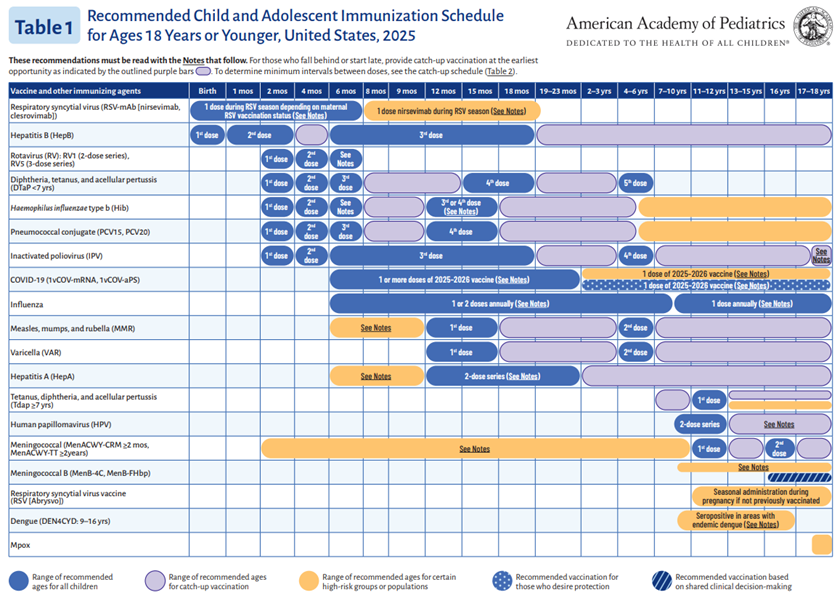Many parents and caregivers have questions about vaccines. Here are some common questions answered.
Can some vaccines cause autism?
Extensive research shows no link between autism and any vaccine. Multiple large studies and reviews confirm this. The claim that vaccines, especially the MMR vaccine, cause autism came from a 1998 study that was later discredited and retracted for serious flaws. The doctor who led the study has been barred from practicing medicine. Multiple other studies have been done around the world and included hundreds of thousands of children. All studies done since have found no connection to link vaccines to causing autism.
Major medical organizations, including the American Academy of Pediatrics (AAP) and World Health Organization (WHO), have confirmed vaccines are safe and do not cause autism. What we do know is that vaccines protect children from serious, potentially life-threatening diseases, and the risks of skipping vaccines are far greater than the very rare side effects.
Is Thimerosal (mercury) in vaccines dangerous?
No. Thimerosal is a preservative that contains ethyl mercury, which the body clears quickly. It is different from methylmercury, the type that can build up in fish and cause harm at high levels.
Extensive research has shown no evidence that thimerosal in vaccines is harmful to children or adults. Out of caution, thimerosal was removed from nearly all routine childhood vaccines in the U.S. starting in 2001. Major health organizations confirm that thimerosal in vaccines is safe.
I'm worried that giving too many vaccines at one time may overload my child’s immune system and that spacing out the vaccines is safer.
Children are exposed to far more antigens (an immune-stimulating component and one of the ingredients in vaccines) daily from food and the environment than from vaccines. In fact, a child with a cold is exposed to far more antigens than they would be from a routine set of vaccinations.
The childhood immunization schedule is created by top medical experts and is designed to protect a child at the most vulnerable times in their development. Giving multiple vaccines at a single visit is safe and does not cause chronic health problems.
Spreading out vaccines leaves a child unprotected against dangerous diseases for a longer period. This blog further explains the dangers of spreading out or delaying vaccines.
If my child is healthy, why do they need vaccines?
Our kids are healthy today because of the success of vaccines! Yes, healthy kids still need vaccines to protect themselves and others from serious and sometimes deadly diseases. We have seen how routine vaccines have made us forget about diseases that used to cause severe illness and sometimes death in children. It is estimated that routine childhood vaccination has prevented ~508 million U.S. illnesses and 1.1 million deaths among children born 1994–2023. We have seen recently that outbreaks often start in under-vaccinated groups and can severely affect healthy children. We know vaccines are extensively studied and are safe.
Is there a possible link between vaccines and Sudden Infant Death Syndrome (SIDS)?
There is no connection between vaccines and SIDS. Infants typically receive several vaccines between the ages of 2 and 4 months, which is coincidentally the peak age for SIDS. Many scientific research studies have investigated whether or not there could be a correlation. These studies have found either no relation between vaccinations and SIDS, or a reduction of the risk of SIDS following vaccination.




